
Volume Four, Issue Fourteen
Feed the Future: Growing Innovation, Harvesting Results
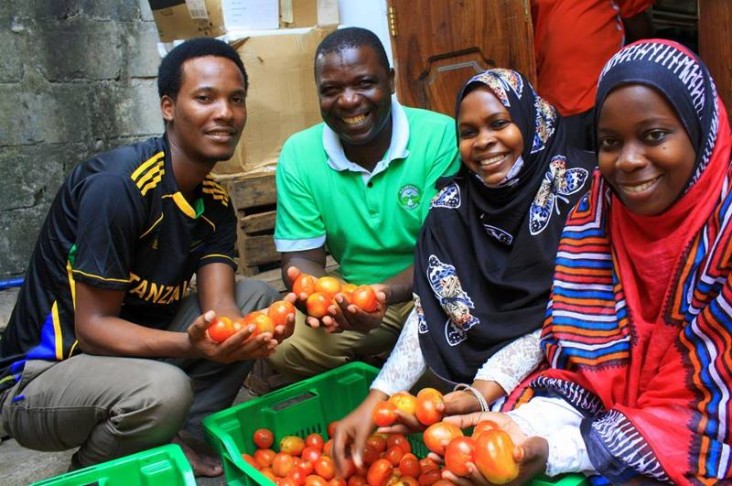
On Thursday, USAID joined the co-chairs of the Senate Hunger Caucus and the Chicago Council on Global Affairs to celebrate advancements in global food security and nutrition highlighted in the new Feed the Future report and during President Barack Obama's recent visit to Africa.
The event in Washington, D.C., featured a keynote address by Administrator Rajiv Shah and a discussion moderated by former Agriculture Department Secretary Dan Glickman on the way forward in the fight against global hunger and undernutrition.
Administrator Shah also announced two new Feed the Future Innovation Labs to improve climate resilience in some of Africa's main cereal crops and to increase private sector investment that can help smallholder farmers. These Innovation Labs draw on the expertise of top universities around the country and represent a new model of development, using science and technology to address some of the greatest challenges in agriculture and food security.
Didn't have a chance to attend? You can read a "Behind the Scenes" blog with Tjada McKenna, Feed the Future's deputy coordinator for development; recap the event on Twitter using #FeedtheFuture; or watch a video of the event here. And don't forget to tell us how you are working to end hunger and why it matters to you by answering the question "How will you #feedthefuture?" on Facebook and Twitter.
USAID Launches New Gender Program in Afghanistan
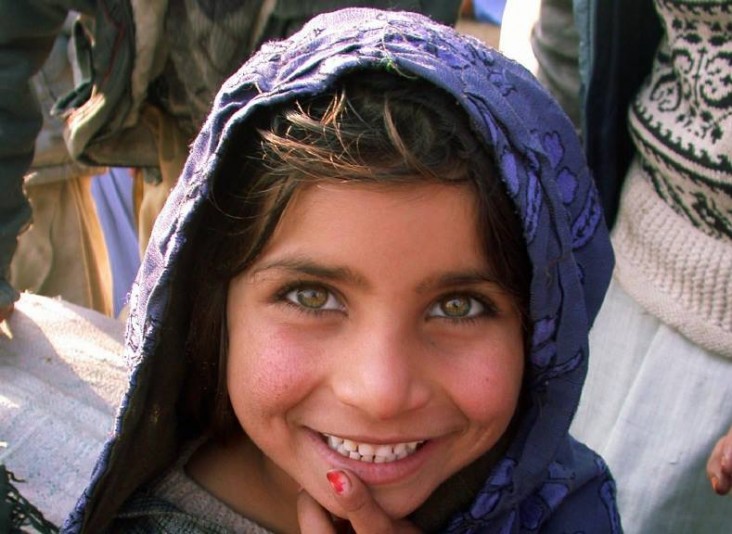
With the launch of Promote on July 18, USAID ushered in a new project focused on educating, promoting and training a new generation of Afghan women ages 18-30.
The announcement came during an event at the U.S. Institute of Peace where USAID hosted an expert panel that highlighted efforts by the U.S. Government and other international partners to ensure an ongoing commitment to the empowerment of women and girls in Afghanistan.
The event included a keynote speech by Shah, who said that "enormous progress has been made in advancing opportunities for women and girls in Afghanistan over the past 11 years." He added that he looks forward to continuing the commitment USAID has made in the country: "While there are challenges ahead, Promote underscores our commitment to ensuring that women and girls play a major role in determining Afghanistan's political and economic future."
Subject to the availability of funds, the ceiling limit for Promote is set at $416 million to allow for possible contributions of up to $200 million from other international donors.
Humanitarian Concerns
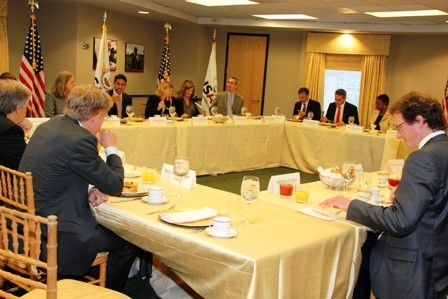
On July 23, Administrator Shah hosted a breakfast with humanitarian agency heads to discuss the crisis in Syria and the current humanitarian response.
Representatives came from the United Nations Office for the Coordination of Humanitarian Affairs, the U.N. Refugee Agency, the World Food Program, the U.N., Children's Fund, the International Organization for Migration, the World Health Organization, the International Committee of the Red Cross, the U.N. Relief and Works Agency and the State Department's Bureau for Population, Refugees and Migration.
In other humanitarian concerns last week, the Administrator released a statement about the escalation of the humanitarian crisis in Pibor City in South Sudan's Jonglei State. Learn more.
Saving Lives at Birth Grand Challenge
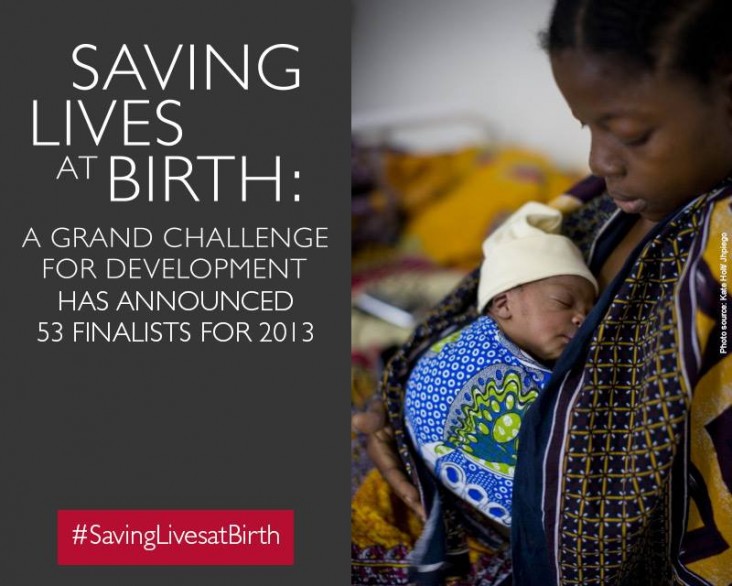
USAID will host "Saving Lives at Birth: A Grand Challenge for Development" July 29-31. The Saving Lives at Birth partnership, launched in 2011, is a global call for groundbreaking, scalable solutions to infant and maternal mortality. Saving Lives at Birth is currently in its third award round, and has funded 39 innovations to date, helping to address the 150,000 maternal deaths, 1.6 million neo-natal deaths, and 1.2 million stillbirths that occur each year.
Partners include the Government of Norway, the Bill & Melinda Gates Foundation, Grand Challenges Canada, and the UK's Department for International Development.
For three days, 53 finalists will compete in the final stage of the competition, in Washington, D.C., where innovators will display their ideas in an open, dynamic marketplace and development experts, fellow innovators and potential funders will meet and exchange ideas.
Round three finalists, as well as grantees from rounds one and two, will participate in discussions focused on meeting the needs and realities of women and children in low-resource settings as well as workshops such as business planning, market research, measurement, and monitoring and evaluation. The award nominees with the most promising innovations will be announced at a high-level forum on the last day of the DevelopmentXChange. Speakers at the event will include Administrator Shah and National Security Advisor Susan Rice. Read more about this year's finalists.
U.S. Economic Assistance to Eastern Europe and Eurasia Marks 20 Years
Earlier this week, USAID marked 20 years of U.S. economic assistance to Eastern Europe and Eurasia at an event hosted by the Global Economy and Development Program at the Brookings Institution. The program included a discussion on U.S. economic assistance to post-communist Eastern Europe and former Soviet Union countries.
USAID Assistant Administrator for the Bureau for Europe and Eurasia Paige Alexander delivered introductory remarks followed by a panel discussion with Department of State Special Coordinator for Middle East Transitions Ambassador William Taylor, Booz Allen Hamilton Senior Vice President Donald L. Pressley, and University Research Co. President Barbara N. Turner. Brookings Senior Fellow George Ingram moderated the discussion. Read the report.
Nobel Laureate Muhammad Yunus Visits USAID
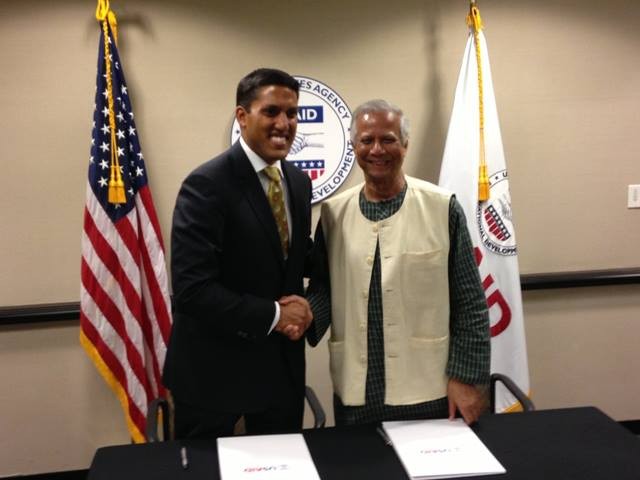
On July 22, Nobel Laureate Muhammad Yunus visited USAID staff in Washington, D.C. to participate in a Development Forum with Administrator Shah.
Yunus talked about his work in microcredit and microfinance that supports poor entrepreneurs, the majority of whom are women, and pushing forward a social business model that aims to solve social problems in financially self-sustaining ways. After the Development Forum, USAID live tweeted a high-level leadership meeting with Yunus and Agency leadership, where they discussed ways to end extreme poverty.
Get a recap of the leadership meeting by reading the questions we received from you and Yunus's answers on Twitter.
USAID In the News
The Tanzanian Guardian carried a front page story on the harvest of the orange-fleshed sweet potato (OFSP), part of USAID's support for improved nutrition through Feed the Future. Mission Director Sharon Cromer spoke at the event celebrating the harvest, calling OFSP "an ideal crop" to help vulnerable households fight malnutrition.
US News & World Report published an article about President Barack Obama's Africa team and its members continued engagement on the continent. Administrator Shah and Earl Gast, assistant administrator for the Africa Bureau, are mentioned in the article.
Devex published an article about Nobel Laureate Muhammed Yunus's visit to USAID where he signed an agreement with the Agency to promote entrepreneurship through his new venture Yunus Social Business and talked with Agency staff.
In a letter to the editor of the Washington Post,
Mirza Jahani, the chief executive of Aga Khan Foundation USA, notes that the American government through USAID "is working with partners, including the Aga Khan Development Network, in Wakhan [Afghanistan] on better governance and services in health and education." He said "more must be done" but again, "much is already taking place."







Comment
Make a general inquiry or suggest an improvement.